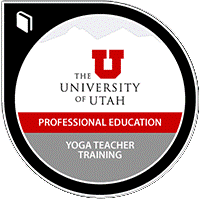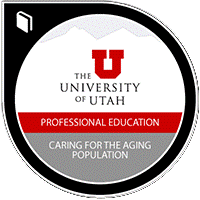Health Law for Non-Lawyers Program

- Prepare for leadership in your health care career
- Equip you with the ability to flag or identify potential legal issues in your work
- Allow you to intelligently discuss a potential legal issue with legal counsel, if needed
- All classes offered online
Are you a health care professional or student seeking to deepen your understanding of the basic legal frameworks that shape your field? Our program offers a rigorous, graduate-level experience open to non-lawyers who want to master the legal essentials of health care. These challenging courses meets alongside our graduate students in the College of Law, fostering a rich, multifaceted learning environment. Through in-depth instruction and real-world case analysis, you'll gain the legal fluency needed to navigate regulations, ensure compliance, and collaborate effectively with legal professionals—without needing a law degree.
Who Should Participate
These courses are designed by law professors for graduate students in the Master of Legal Studies (MLS) program here at the U. As such, courses are rigorous, and you would be expected to participate in all discussions, assignments and readings the same as your matriculated peers. Students educated or working in the medical field are encouraged to take these courses.
Program Details
Students may take one or all of the three courses in this program to meet their professional needs. The requirements of participation are outlined below. Successful completion of a course will earn the student a digital credential (badge) associated with that course, for up to 3 badges earned from the University of Utah.
Prerequisites – We ask students to ensure they meet the following prerequisites so that they come equipped to benefit from these rigorous courses; a Bachelors degree, OR an Associates degree, OR completion of a professional medical education program, OR equivalent work experience in the industry (one year of education can be substituted for two years of related work experience).
Format – Each course is offered online.
Course Sequencing – Students must take LAWC 610 first, and it is only offered Fall semesters. Once completed, students may take LAWC 615 or LAWC 620 as desired when they are offered (see Course Information below).
Learning Outcomes
By completing all three courses, students will be able to:
- Recognize the key legal structures (including federal and state laws, regulations, and court decisions) that shape healthcare delivery, financing, and compliance in the U.S.
- Understand how legal and ethical frameworks affect healthcare operations, including patient rights, privacy, informed consent, malpractice, and access to care.
- Identify and explain the core components of an effective healthcare compliance program, including oversight, training, auditing, incident response, and communication across departments.
- Spot legal and compliance risks in healthcare settings—such as potential fraud, privacy breaches, or regulatory violations—and know when to seek legal guidance.
- Apply practical knowledge of health law and compliance to support ethical decision-making, ensure regulatory adherence, and contribute effectively to a healthcare organization's leadership and operations.
All three courses are offered online in a traditional semester schedule with fixed start and end dates. Courses meet with for-credit graduate sections.
LAWC 610 Health Law for Non-Lawyers
Prerequisite for LAWC 615 and LAWC 620 – only offered Fall semester
Health Law for Non-Lawyers will introduce students to important aspects of the legal structure of the US health care system. Topics covered may include major federal statutes affecting health care (e.g. Medicare, Medicaid, ACA, EMTALA, ADA, GINA and HIPAA) and recent developments concerning these statutes; payment for health care in the US; confidentiality and privacy; tort litigation and malpractice; non-discrimination and the duty to treat; the regulation of drugs and devices; and law and controversial forms of care such as abortion. This course will prepare students who wish to complete the MLS concentration in health care law or who are otherwise interested in learning more about the legal aspects of the U.S. health care system.
LAWC 615 Health Care Fraud and Abuse
Only offered Spring semester
Health Care Fraud and Abuse is a survey of the federal regulatory structures governing health care organizations and providers who bill federal programs for services provided to patients. The course will review the historical, theoretical and policy themes in health care regulations and focus on the primary regulatory laws and structures. These may include the False Claims Act, the Anti-Kickback Statute, the Physician Self-Referral Law, the Civil Money Penalties Law, and the Department of Health and Human Services Office of the Inspector General Exclusion Authorities.
Students will refine their understanding of administrative law in the health care context and be better prepared for advanced training in health care compliance and otherwise advancing a career in health care.
LAWC 620 Health Care Compliance
Only offered Summer semester
Health Care Compliance builds upon the principles and substantive knowledge gained in the Health Care for Non-Lawyers and Health Care Fraud and Abuse courses. It focuses on the basic legal framework that governs a critical component of the health care system – operating an effective health care compliance program. Students will learn the primary components of a comprehensive health care compliance program, gain an understanding of the matters that compliance programs typically are tasked with overseeing, and delve into the various roles and duties that health care workers assume in a compliance program. The course will be of interest to students who wish to learn more about health care in general, as well as students who may wish to work in compliance.
Total cost for each course is $1,250 and is due at the beginning of the course. Textbooks are additional cost and may be included as an “Instant Access” fee (see below for more information). Tuition listed above subject to change without advance notice.
The University of Utah Campus Store has a course materials program called Instant Access which provides digital course materials/textbooks to students at a reduced cost. If your instructor participates, you should receive an email prior to the first day of class with instructions on how to access your course materials in Canvas.
- Financial aid is not available for non-credit classes. Students are encouraged to inquire with their employers to determine if tuition assistance is available.
- This course is eligible for faculty/staff tuition reduction or emeritus benefits.
- GI Bill funds do not cover tuition for noncredit classes. Please contact the Veterans Support Center for questions about benefits advising.
- Students may drop and receive a refund for these classes up until the semester “Last Day to Drop”, which can be found on the Academic Calendar.
Why choose the University of Utah?
We understand that you have a choice when it comes to taking professional development courses and we work hard to earn your trust with each and every class. By selecting the University of Utah, you’ll enjoy the following benefits whether you’re coming to us as someone new to the job market, a career changer, a seasoned professional or a lifelong learner.
Resume Power - benefit from the University of Utah reputation for credibility and quality. Choosing the University of Utah for your education makes a clear statement about your commitment to excellence.
Instructor Excellence - learn from the same high-quality faculty that teach in our degree programs, alongside our MLS graduate students.
The Power of the U Network – students have access to a valuable University of Utah peer and faculty network.
Programs that Fit Your Schedule – this program offers convenient online classes for a schedule that works around you. Go to class whenever and wherever you want.
Course Completion Requirements
- Students will be required to fulfill the same expectations and requirements as matriculated students including exams, projects and participation.
- Students will receive an “S-Satisfactory” or “U-Unsatisfactory” assessment for each class. “S-Satisfactory” will indicate that the student has met the standards for at least a C-.
- Students must receive an “S-Satisfactory" grade for successful completion.
How is my accomplishment recognized?
For students earning an “S-Satisfactory" grade, the completed certificate will appear on University of Utah official transcripts.
Students will also be awarded a University of Utah digital credential (badge) that can be shared on social media sites and used with other professional resources. Digital badges are embedded with metadata that validate the skills demonstrated and other requirements for earning the badge.Digital Credentials / Badges

 Follow the link on the badge to the left to find out what metadata is behind the Yoga Teacher Training Certificate or Caring for the Aging Population Micro-certificate badge. This is an example of the type of information you’ll find behind all our academic noncredit certificates.
Follow the link on the badge to the left to find out what metadata is behind the Yoga Teacher Training Certificate or Caring for the Aging Population Micro-certificate badge. This is an example of the type of information you’ll find behind all our academic noncredit certificates.
Find out more about Digital Badges at the University of Utah »
Do I need to have a background in law?
No, but you should be educated or working in the medical field.
Do I need to be admitted to the university to take these classes?
No. These classes are open to anyone meeting the prerequisites listed under “Program Details”. Simply add to cart, pay, and attend class!
Must I complete the same assignments, exercises and exams as the MLS students who are taking the class for credit?
Yes, although you will not receive a letter grade, and instead will receive a satisfactory or unsatisfactory grade for the entire course.
How difficult are these classes?
These are 3 credit hour equivalent graduate level classes coming out of our College of Law. They are designed to educate our Masters in Legal Studies students on health care law emphasis. Accordingly, they are rigorous. However, we believe students with the appropriate background in the medical field will understand and benefit from these courses after taking the first required course, LAWC 610. This is the introductory course that will establish student understanding on the foundational concepts expounded upon in the later courses.
Are scholarships or financial assistance available?
At this time, we do not have any scholarships available for these courses.
Noncredit Certificates Program
Contact Noncredit Certificates Program for questions about course completion, registration or payment issues.
Taylor Bond
Administrative Program Manager
certificates@utah.edu
(801) 581-7912
S. J. Quinney College of Law
Contact the College of Law for questions about class experience, qualifications for placement on the court roster, future class offerings, or any class-specific information.
Stephanie Peterson
Director of Non-JD Programs
Stephanie.Peterson@law.utah.edu
Upcoming Classes
| Class Title | Next Start Date |
|---|---|
| Health Law for Non-Lawyers | 08/18/2025 |

